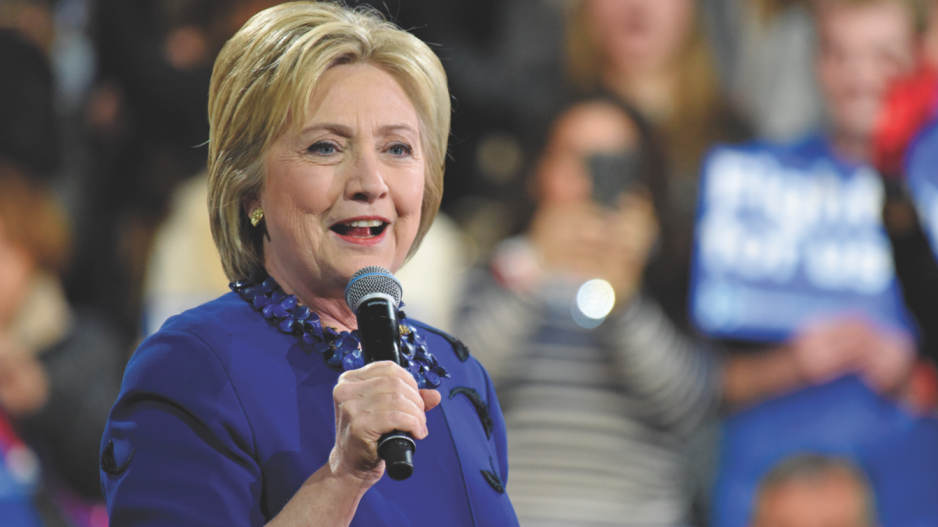The U.S. political strategist behind Barack Obama’s 2012 re-election and this year’s failed European Union referendum in the U.K. got one thing right about the outcome of the November 8 U.S. presidential election.
Jim Messina sparked loud cheers at the BC Liberal convention November 5 when he told the Westin Bayshore crowd that Hillary Clinton had an 84.7% chance of winning.
“America is now the most partisan country in the world; only about 7% of Americans are undecided; the other 93 decided a long time ago,” Messina said. “Of course we’re going to have a close election. I think this election is going to be closer than people think.”
Three days later, Republican Donald Trump won the electoral college race by 51 more votes than Clinton to become the next president. Clinton did, however, hold an edge in the nationwide popular vote.
Messina was asked by emcee Jas Johal, the former Global TV reporter handpicked by Premier Christy Clark to run in the Richmond-Queensborough next May, about the challenges of being a female candidate. “Strangely enough,” Messina said, women face an uphill battle among their own.
“Women judge women politicians hard,” Messina said, noting that Obama enjoyed better female support in battleground states over Clinton when they were both running for the 2008 Democrat nomination.
FiveThirtyEight.com, the ESPN.com politics section, reported November 9 that “Although Clinton didn’t outright lose women, their relatively anemic support for her in key states played a role in her electoral college demise.” Overall turnout among women improved by only 1% from 2012.
In one demographic, FiveThirtyEight reported that exit polling found Trump enjoyed the support of 62% of women who were not college graduates, compared to 34% for Clinton.
When B.C. goes to the polls next May 9, Clark will be the first female premier to seek a second term. B.C.’s first female premier, Social Credit’s Rita Johnston, lost the 1991 election to Mike Harcourt and the NDP.
Messina was also a key advisor to the U.K.’s failed Remain campaign in last June’s referendum on membership in the European Union. Nearly 52% of voters opted to leave the EU in the so-called Brexit vote.
While the polls got the outcome wrong, Messina said “one thing they didn’t get wrong was that the pro-Brexit voters were always way more intense.”
Remain voters “thought they were going to win. The turnout numbers weren’t as high as they should’ve been.”
The lesson?
“There was never a compelling case of why staying in the EU mattered,” Messina said. “Inspiring more voters to fight for something; it’s not just enough to be against it. Voters still want to care about something.”




